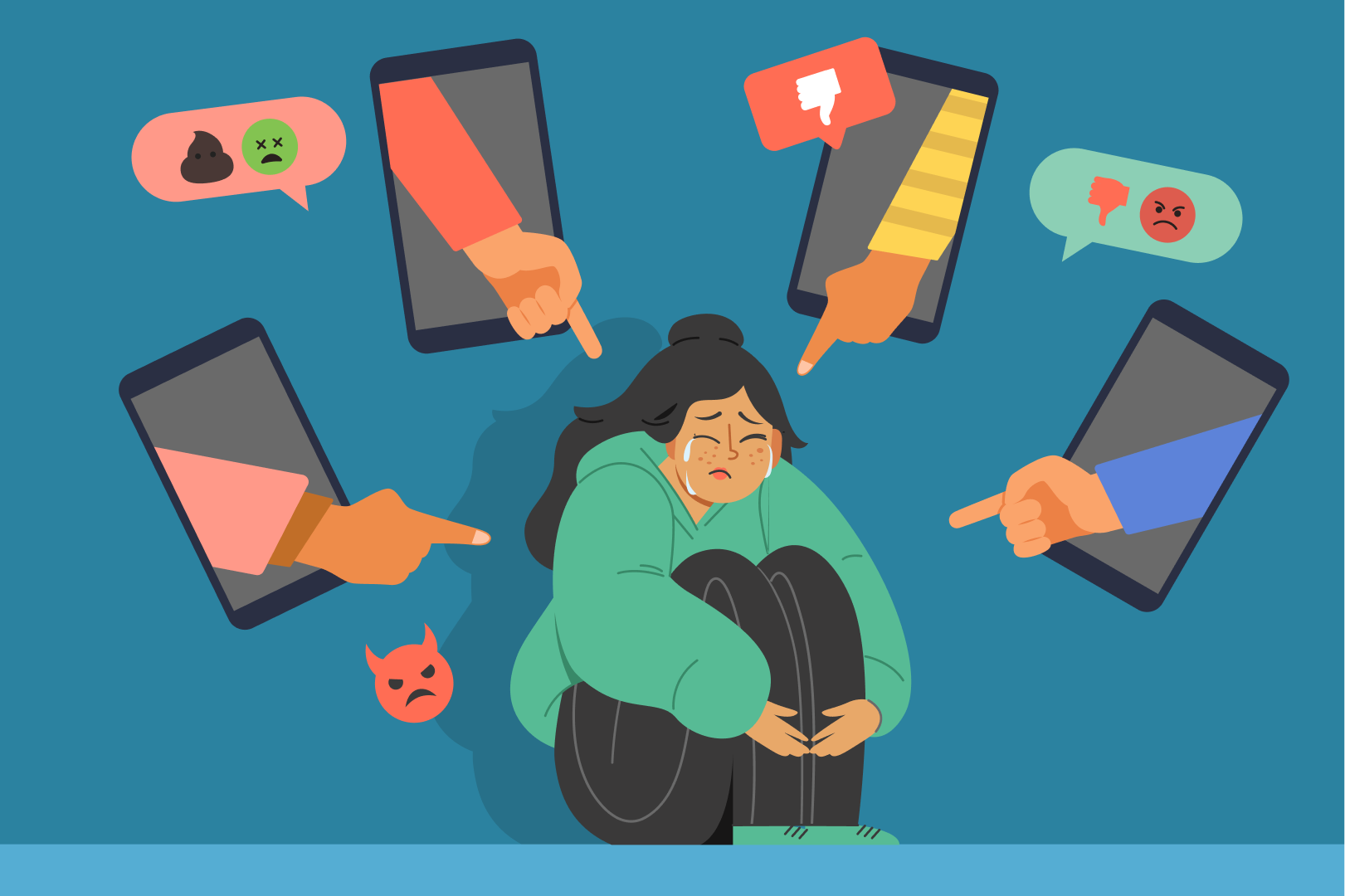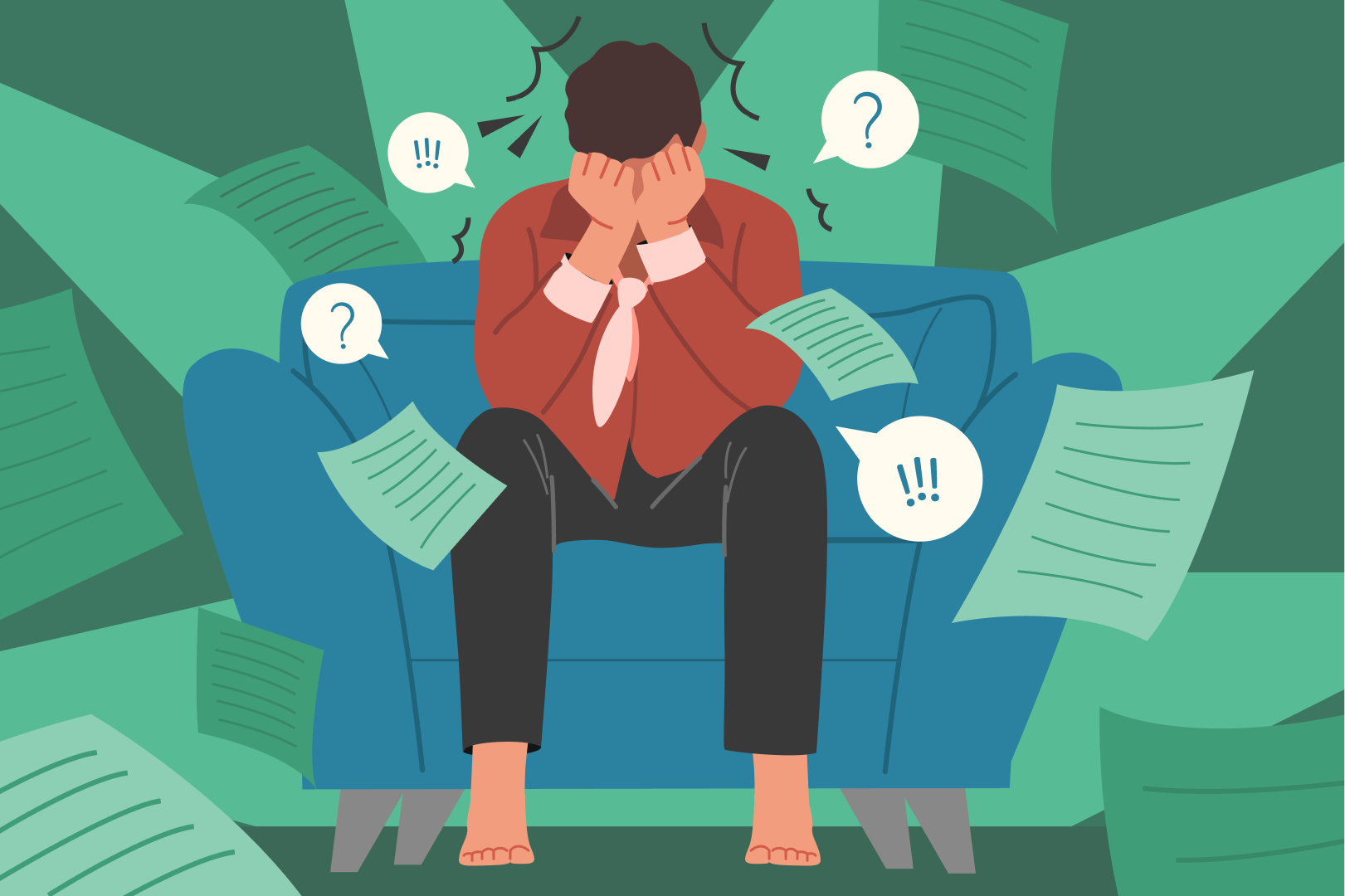It’s normal to feel sad occasionally when you’re going through a stressful or difficult Time, or the general ups and downs of life. However, if you feel low on more days than not for a few weeks, or if you really aren’t sure why you feel so bad, there might be something more serious going on.Feeling more sad than usual for a really long time can be concerning though and could be a sign of depression
What is depression?
People often use the word ‘depressed’ when they’re talking about moments or periods of time when they’re feeling sad or down.
‘Depression’, which is often diagnosed as ‘major depressive disorder’ or ‘clinical depression’, refers to significant feelings of sadness or a low mood that last longer than two weeks and start to get in the way of your everyday life. Depression is a condition that can only be diagnosed by a mental health professional.
What causes depression?
There is no single cause of depression. It likely develops due to a combination of factors, including life events (such as experiencing violence or losing someone close to you) and biological factors (genetics or hormones).
People affected by depression often experience negative thinking patterns and may stop doing their regular activities, which can make their symptoms worse. In other words, depression becomes a bit of a cycle: your mood is so down, you don’t feel like doing anything, so you stop doing the things you enjoy or that you need to do (such as schoolwork or daily tasks), which makes you feel even worse.
What are some signs and symptoms of depression?
Everyone who experiences depression will have a different array of signs and symptoms, but there are some common ones, which can range from mild to severe. Many people don’t realise that depression doesn’t just affect someone’s mood – it also affects their body. Some of the signs and symptoms of someone experiencing depression, you can see. Others, however, are invisible to everyone else.


Most people experience some of these feelings and behaviours occasionally. The difference with depression is that the symptoms are more severe, happen more often, and don’t go away over time.
What to do if you think you’re experiencing depression?
If you think you’re experiencing symptoms of depression, visit your doctor or a mental health professional. The good news is, if you’re diagnosed with depression, there are treatments available. Your doctors can work with you to create a treatment plan that suits your personal circumstances and experience. This could include things like:
- psychological treatments, such as cognitive behavioural therapy
- lifestyle changes, such as regular exercise, eating well and implementing sleeping routines
- medication (usually anti-depressants).
Have a look at our fact sheets on treatments for depression and self-care strategies for more information on what you can do to manage depression. Keep in mind that everyone responds to treatments differently, so finding the right treatment and the right mental health professional could take time. Keep trying until you find something that works for you.

What are ‘self-help strategies’?
In addition to seeking help from someone you trust or a mental health professional, there are other ways to self help for depression. You might not notice a difference straight away, but practising these skills each day can help you to overcome the ‘cycle’ of depression, where feeling bad about yourself leads you to doing less and feeling worse.
1) Challenge negative thoughts
Writing down your thoughts is a good way to identify those that are making you feel down and depressed. Just because we think something, it doesn’t mean it’s true; so, learning how to challenge negative thinking can help your overall mood and self-esteem. For example, if you find yourself thinking: ‘Nobody cares about me’, you can challenge this thought with: ‘My family cares about me.’
If your mood is really low and you’re having difficulty challenging your thoughts, avoid writing them down on your own and instead seek help from a mental health professional.
2) Avoid using alcohol and drugs
If you’re using alcohol and drugs to cope, you could actually be making your symptoms worse. Sometimes, drugs and alcohol make us feel worse straight away; other times, they might make us feel better initially but later can bring our mood down even lower. Get some tips on how you can reduce your alcohol or drug usage.
3) Stay active
Exercise can make a difference to your energy levels and help stimulate hormones (such as endorphins) that help you to feel better about yourself. Make a realistic goal to increase your level of activity.
For example, if you’ve found it difficult even to get out of bed for the past few days, an achievable goal might be just to leave your room and walk around your home. After that, you could start thinking bigger: set a goal of walking down the street or doing five minutes of yoga at home. Starting small will help make it more manageable and keep your expectations realistic.
4) Do things you enjoy
When you’re down, it can be hard to get motivated to do the things that make you feel good. It can also seem impossible to enjoy doing something if you’re experiencing depression. Even so, each day, try to make yourself do one thing you used to enjoy doing, to give yourself a sense of achievement.
The activity could be super-simple, such as reading five pages of a book, dancing to a song you like, putting on your sports uniform or spending five minutes drawing.
5) Talk to someone
It’s common to withdraw when you’re feeling depressed, but this can make you feel worse. Try to reconnect with friends.
Again, make your goal realistic: if you’ve been avoiding your friends altogether, a starting point might be to send a text or to send a reply that you’ve been putting off.
If you don’t feel like talking to someone you know, you could connect with our mental health coach.
6) Get outside
When you interact with nature, including pets, plants, gardens and parks, it reduces stress and boosts your mood. Sunlight also helps to regulate your mood. Try standing for a few minutes outside in the fresh air, or if you can manage it, go for a walk around the block.
If you’re unable to go outside, try standing by an open window to feel the sun’s warmth and breathe in the fresh air.
7) Practise relaxation
Relaxation is great for reducing stress. Write down a list of things that help you to unwind and keep it handy for when you’ve got some spare time. It doesn’t matter whether you’re playing with doggos in the park or kicking a footy around – as long as it helps you to chill out and recharge. If you’re stuck for ideas, we’ve got a bunch of ways to chill for cheap here.
I’m feeling a bit better and I can do more…what can I do next?

Talk to someone you trust
Depression can feel lonely. Talk with a family member or a close friend about how you’re feeling. They can also provide an outsider’s opinion on what’s going on. If you don’t feel like leaving the house, you could ask them to come and hang out with you at home.
Join a support group
It can be helpful to talk with people who’ve gone through a similar experience. Check out key services for help with depression for more information. You could also chat with someone from a support service, over the phone or online.
Learn positive coping strategies
Things can feel overwhelming when your mood is low, and it can be difficult to know how to cope. We have some strategies here to help build better coping skills.
Set small goals
Don’t aim too high; it could make you feel worse if you can’t meet your expectations. Set yourself small goals and take things one step at a time. See our goal-setting factsheet for more tips.
Learn something new
Developing new skills and achieving things can lift your mood. Write a list of things you would like to try, and pick one to start with. For example, you could sign up to an online course and learn to speak a language or how to code, or you could go on YouTube and learn how to garden, to play an instrument or how to bake.
Get creative
For many people, being creative is a way to think through hard feelings and experiences, and many people find this helpful on the path to recovery. For example, you could write stories or music, draw or paint, or play an instrument.
Develop a healthy sleep routine
Sleep has a huge effect on our physical and emotional health. It’s likely that your previous sleep routine has gotten out of whack, which may affect everything from being able to go to school or work, to having the energy to see your friends. Get some tips to help you get into a sleeping routine.
We know it can be tough to take on any of these tips when you’re feeling really bad. When it comes to self-help, strategies for feeling better are very individual – different things work for different people. Not everyone will want to start doing yoga, for example, so keep trying different ideas if the first thing you try doesn’t help.
Remember: it takes time to get better. Doing something for five minutes every day might feel useless at the time, but you could find that a few weeks later, your mood has improved a bit. Baby steps. You’ve taken the first step in coming here, now keep it up.
What do I do if self-help isn’t working?
If you’ve tried the depression self-help strategies above but your symptoms are still overwhelming, go and see your doctor or a mental health professional for additional depression help.
Your doctor will have suggestions for alternative things you can try to help manage your depression from day to day, and will be able to assess what to do next. Treatments such as psychological therapy and medication, and having a good relationship with a doctor, psychologist and/or psychiatrist, can be effective in treating depression and improving mood.
If you are experiencing suicidal thoughts.
If you sometimes think about taking your life or feel that you want to die, it may be because you can’t see any other solution to the difficulties you’re going through. Sometimes life can be really overwhelming and it can be incredibly difficult to know how to handle things.
If you’re beginning to feel that there’s no way out, it might help to know that many people who’ve thought about suicide found that those feelings went away, and they were glad they didn’t go through with it.
Maybe you feel that there’s no one you can trust to help you, or that you just don’t fit in with the people around you. Sometimes it’s difficult to reach out to others for support, but contact with others can make a real difference.
If you think you need to talk to someone about how you’re feeling but there’s no one around that you trust, you can contact TeleManas Toll free helpline number 14416 & 18008914416 to get in touch with the Counsellor. TeleManas is an initiative by government of India to provide mental health assistance.
Understanding suicidal thoughts
It’s important to remember that suicidal thoughts are only thoughts. Just because you’re thinking about suicide, it doesn’t mean you have to act on these thoughts.
It’s totally normal to feel overwhelmed and stressed if you’re going through a tough time, and sometimes it can feel like things will never get better. If you’re thinking of suicide because you can’t think of any other way out, it’s important to know that there are a number of ways you can keep yourself safe and work through your feelings.
Things you can do to manage suicidal thoughts
- Develop a safety plan
Anyone who has experienced suicidal thoughts in the past or who is going through a tough time should plan ahead for how they are going to manage suicidal thoughts if they come up. There are apps to help with how to make a safety plan, or you can speak to a mental health professional.
- Seek help early
Talk to someone about how you’re feeling; a family member, friend, local doctor or support service can be a good place to start. If it seems that people aren’t listening, keep asking for help until someone does.
- Postpone any decision to end your life for 24 hours
Use this time to talk to someone you trust.
- Avoid being alone (especially at night)
Stay with a family member or friend, or have someone stay with you until the thoughts of suicide decrease.
- Avoid drugs and alcohol.
Many drugs can make you feel even worse. They won’t solve your problems and may even make you do things you wouldn’t normally do.
- Write down how you’re feeling.
Sometimes writing a journal, story, song lyrics or poem can help you to understand yourself better and find alternative solutions.
- Challenge your thoughts.
Remind yourself that, just like other thoughts, suicidal thoughts come and go and thinking something doesn’t mean you have to act. Don’t accept thoughts for what they are; think of ways to challenge them. When someone is experiencing suicidal thoughts, they might really be feeling that no one cares, or that others would be better off without them. This is never true – what would you say if a friend said that to you?
- Remind yourself of reasons to live.
Write down what is keeping you from acting on suicidal thoughts. Remind yourself that even though things might seem hopeless, there are things that are important to you and that you still want to do.
- Talk to someone who can help.
If you need to talk to someone immediately, call the TeleManas helpline. They will provide you emergency care and help you find long term support too.
If you’re comfortable with scheduling an appointment at a later date, you can book an appointment with one of our mental health coaches. They’re experienced and approachable!
- Set yourself small goals.
Try to set goals that will make you feel in control and help you move forward. Write them down and tick them off when you’ve achieved them.








